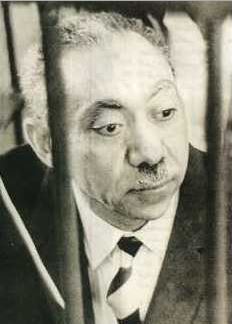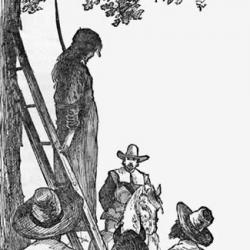
An Islamist philosopher was an unsparing critic of the U.S. Some of his critiques have an uncanny resemblance to those of French philosophers.
Recently, I’ve been reading from The Stone Reader, a collection drawn from The New York Times’ popular philosophy column. One essay in particular has stood out to me – Andy Martin’s “Sartre and Camus in New York.” In that piece, Martin lays out the influence that visits to America, and particularly New York City, had on the French philosophers Jean-Paul Sartre and Albert Camus. He relates how Sartre, a philosopher obsessed with freedom, was disappointed to find that in America, a society that supposedly embodied individualism and liberty, people were burdened by an inexorable march toward conformity and objectification. On the other hand, Camus, a man seemingly comfortable with the objectification of humanity (Martin points out his fascination with that most objectifying of events, the death of the body, and his basking in the beauty of “long-legged starlets” at Vassar), seemed to take away from America a sense of the unbridgeable gaps between human beings, of the inability of language to truly convey humans’ sentiments to one another. In other words, to Sartre, America was an unenviable example of the dehumanizing nature of modern capitalism; to Camus, America illustrated the frustrating limits of individualism, the inability of any person to achieve true solidarity with another.
Thinking about the disparate effects that America had on Sartre and Camus put me in mind of another philosopher whose beliefs were shaped by his encounters with the United States – Sayyid Qutb. An Egyptian author, teacher, and civil servant, Qutb traveled to America a few years after the Frenchmen’s visits to study at what is now the University of Northern Colorado. Prior to his American sojourn, Qutb was something of a liberal. He regularly published in Egyptian literary magazines, immersed himself in French novels, and noted his love for Hollywood movies. But his pro-Western orientation would shift radically during his time spent abroad. In fact, after his return to Egypt, Qutb published a polemic decrying what he had encountered in the U.S., titling it The America that I Have Seen.
For someone whose work would inspire individuals like Osama Bin Laden, it shouldn’t be surprising that Qutb finds much to condemn in America. What is surprising is how many of the charges Qutb levels against America resemble critiques raised by Sartre and Camus. For example, Qutb, like Sartre, fixates on how American society dehumanized its denizens. At one point in his essay, Qutb intimates that an American man “risks becoming a machine himself”; at other points, he recoils at Americans’ callous behavior, expressing special opprobrium for a man who mocked a woman injured in an elevator accident and a woman who seemed cavalier about the death of her husband.
Though Qutb echoes Sartre’s denunciations of American objectification and conformity, he, like Camus, also laments the hyper-individualism of the U.S. He casts America as a Darwinian nation where only the strong survive and the weak are consigned to failure. Further, he emphasizes the lack of meaningful social ties between Americans – while they congregate in churches and mingle at football games, he sees their relationships as atomistic, woefully lacking in metaphysical depth.
While Qutb at times seems to track his French counterparts’ rational critiques, at other times his anti-American invectives are laughably ridiculous. He makes much of the “strange” custom of Americans putting salt on their watermelon, and, to hear him describe a football game, you would think that he had just watched a fight to the death in the Coliseum. One also gets the sense that much of Qutb’s disdain for America is rooted not in sincerely held beliefs, but in unrequited sexual frustration. Just look at how he “condemns” the “round breasts, the full buttocks, and . . . shapely thighs [and] sleek legs” of American women. Methinks he doth protest too much.
Despite the outlandish and, frankly, adolescent nature of many of Qutb’s views of America, some of his critiques present an interesting perspective – a rabidly anti-Western Egyptian theocrat attacking America with arguments that would have been familiar to the Marxist Sartre and the famously anti-communist Camus. Though these parallels may strike us as somewhat baffling and incongruous, perhaps they should provoke serious introspection. After all, if such divergent personalities can arrive at such remarkably similar critiques, it may well be that there is an element of truth to their fault finding. And if there is such truth, then conscientious Americans can labor to ensure that future visitors to our country won’t come away with the same negative perceptions that burdened Qutb, Sartre, and Camus.












